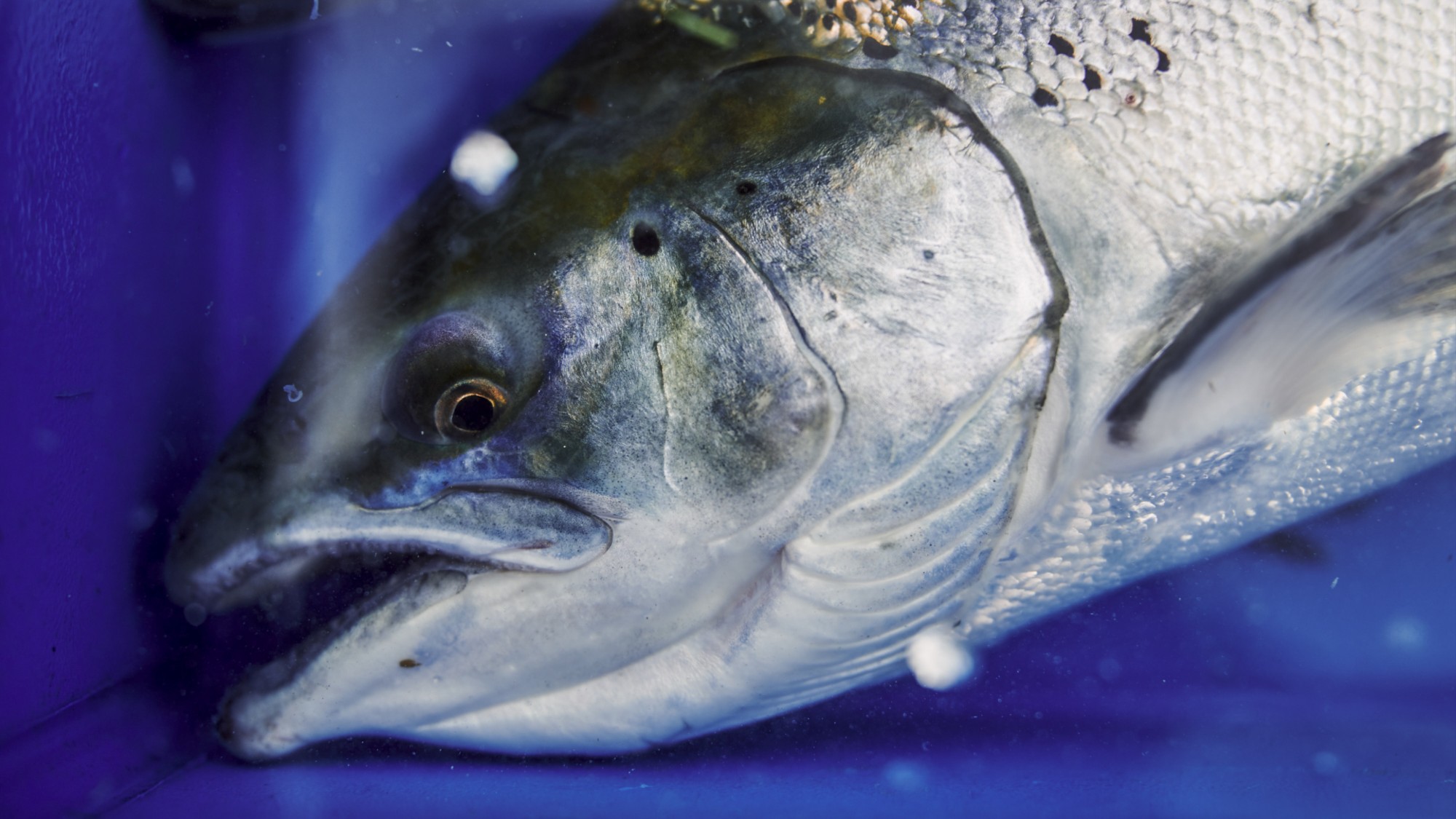The dark side of salmon farming
Scottish salmon is the UK's biggest global food export, but concern is growing over record-high death rates, escapes and environmental impact

A free daily email with the biggest news stories of the day – and the best features from TheWeek.com
You are now subscribed
Your newsletter sign-up was successful
A mass escape of 80,000 farmed salmon off the coast of Scotland, which was kept from the public for two years, has increased concerns over the environmental impact of salmon farms.
In February 2023, the young fish were being transported from Loch Shin to the west coast of Scotland by boat when "human error" led to many escaping through an "unsecured hatch", said The Times. But the incident went unreported because government officials say "they can publicly record only the escapes that are linked to specific farm sites".
Dale Vince, founder of the sustainability charity Green Britain Foundation, which uncovered the incident, said the mass escape – and the fact that it went unreported for so long – should be "a wake-up call for us all".
The Week
Escape your echo chamber. Get the facts behind the news, plus analysis from multiple perspectives.

Sign up for The Week's Free Newsletters
From our morning news briefing to a weekly Good News Newsletter, get the best of The Week delivered directly to your inbox.
From our morning news briefing to a weekly Good News Newsletter, get the best of The Week delivered directly to your inbox.
The cost of farmed salmon
"Revered for centuries as the king of fishes, in more recent years Atlantic salmon has become better known as the battery chicken of the sea," said the i news site. Salmon farms, "once a cottage industry", are now the UK's "fastest growing food production business", and a hugely profitable one, accounting for £580 million of trade in 2023. But "with great demand comes great challenges around ethics and sustainability".
About 70% of salmon we eat globally is raised in fish farms, said the BBC, which in the UK take the form of open pens near the coast, each holding between 30,000 to a million fish.
These are banned in several countries, because fish faeces, uneaten food, copper treatment used to preserve netting, sea lice and chemicals used to treat them pour into the ocean, with "occasionally disastrous consequences" for the environment. In Iceland, salmon is reared on closed net farms on land, while Norway is trialling technologies that almost fully enclose the salmon cages from the surrounding water.
Fish farms are also rife with infection and disease. "In such crowded pens, lice spread as effectively – but far more lethally – as head lice do in schools," said the i news site. In 2023 a record 17.4 million deaths were reported in Scottish salmon farms, according to the Fish Health Inspectorate – a 193% increase on 2020, said The Times. The industry is trying to combat mortality rates with increased antibiotics and chemicals, which also seep into the surrounding water.
A free daily email with the biggest news stories of the day – and the best features from TheWeek.com
The cost to wild salmon
Farmed salmon is also a significant threat to the increasingly endangered wild population. In 2022, there were reportedly more than 52,000 farmed salmon escapees, often as a result of pens being ripped by seals and storms. When farmed fish enter the wild, so do their diseases. "It's a disaster for the local environment," Vince told The Times.
Farmed fish are also selectively bred and genetically different to Atlantic salmon, but they can interbreed with the wild population – and hybrid offspring have lower survival rates in freshwater rivers.
Recent figures from the Environment Agency show that the number of wild Atlantic salmon caught by rod in England and Wales had dropped to a record low, said the i news site, down to about 5,400 from 20,000 in 2017. Although the causes are "complex, and by no means confined to salmon farms", with sewage and climate change among other key drivers, it is "impossible to rule salmon farms out as a factor".
But "the biggest barrier to long-term sustainability" of salmon farming is the amount of wild fish, such as mackerel and herring, needed to feed them. More fish are caught and killed to feed the farmed salmon than salmon is produced to feed humans, according to the Foraged (Wild) Fish Dependency Ratio.
Globally, about 17 million of the 91 million tonnes of wild-caught fish go to the fish-farming industry every year, said Vox. That's about a fifth of all wild fish catch, which threatens food sources of coastal communities in the Global South and has "created a new realm of animal suffering" in itself. "In other words, what was supposed to relieve pressure from overexploited oceans has become a new source of its exploitation."
Harriet Marsden is a senior staff writer and podcast panellist for The Week, covering world news and writing the weekly Global Digest newsletter. Before joining the site in 2023, she was a freelance journalist for seven years, working for The Guardian, The Times and The Independent among others, and regularly appearing on radio shows. In 2021, she was awarded the “journalist-at-large” fellowship by the Local Trust charity, and spent a year travelling independently to some of England’s most deprived areas to write about community activism. She has a master’s in international journalism from City University, and has also worked in Bolivia, Colombia and Spain.